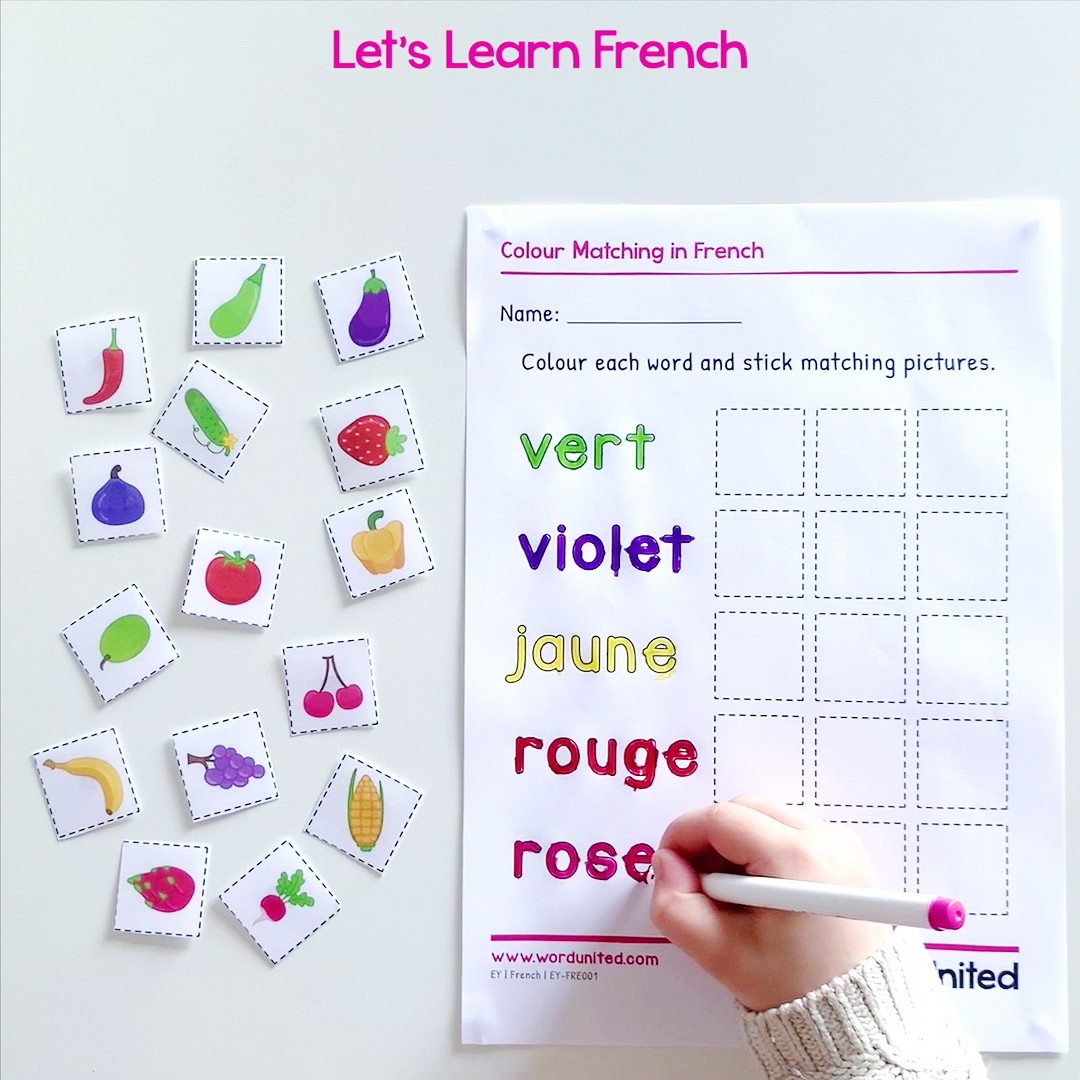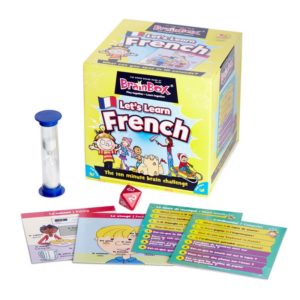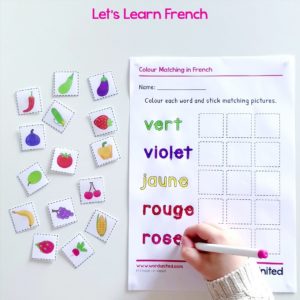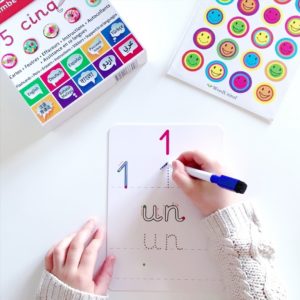No products in the cart.
7 Ways to Learn French For Kids
November 3, 2019

Is your child learning French? As mentioned in this Guardian article, studies show that children who are bilingual may show improved cognitive skills related to memory and attention. Plus, learning a second language can also help children to gain a different perspective. Watch our video above and read below about 7 ways to boost learning French for kids.
1. French Educational Toys
Learning through play is a wonderful and engaging way for kids to learn. Luckily for you, here at WordUnited, we have an excellent collection of French educational toys. Develop memory, observational and social skills with this bestselling memory game. With eco friendly cards made from a minimum of 70% recycled material and all equipment included in the box, BrainBox French is perfect for primary French KS2 learning. Alternatively, for kids who enjoy traditional card games such as Snap, try games such as Usborne Snap in French that are excellent for learning everyday vocabulary whilst improving social and thinking skills.
2. Free French Primary School Worksheets
Looking for free printables? We have a growing selection of free activities and French worksheets on our Free Resources Hub that are easy to download on any device, print and reuse again and again. Try French worksheets such as spinning a colour wheel or sorting different fruits to learn French colour names. Practice French primary school vocabulary for topics including weather, shapes, numbers and more. These fabulous French worksheets are beautifully illustrated with colourful and engaging images to keep learning interesting. They are ideal for KS1 French and French KS2 learning.
3. French Flashcards
Flashcards are a fantastic way to learn! They are snappy, educational and entertaining. So, whether it’s the French alphabet, numbers, actions, colours & shapes, WordUnited has you covered. Each French flashcards kit has a child-friendly durable box with a magnetic lid and is packed with 29 thick double-sided flashcards, pens, erasers, reward stickers, multilingual instructions and translation stickers. Bursting with real life images and fonts that are easy to read, these French Flashcards are an amazing resource for both independent and classroom learning.
4. Books in French for Kids
Browse our lovely library of books and find the perfect fit for your child. Reinforce the learning of 100 everyday French words with interactive sticker books and giant poster books. Improve listening skills and French for kids with Listen & Learn First French Words, a book that contains a clever sound panel for kids to hear 128 everyday French words spoken by a native speaker. A benefit of this book is the ability to combine both listening and speaking skills. Practice translation with a French-English Picture Dictionary containing more than 350 useful words and cute, colourful images, perfect for French KS2 learning.

5. Movies and Songs in French
Grab some popcorn and get cosy watching a movie! Turn on subtitles and watch favourite movies in French or, even better, watch the movie in French! This can help children to easily learn words and phrases in French, as they already know the story. Similarly, this can be applied to your child’s favourite songs and books. Find a French version of your child’s favourite song or book and watch as they learn new words for a story they enjoy. Children could get extra imaginative and try creating their own movie, song or book in French.

6. Online MFL Resources
With the growing availability of online learning, there are plenty of sites to facilitate learning a second language. Websites such as BBC Bitesize make learning French for kids easy! Covering all topics, from weather and transport to hobbies and food, kids will learn French in no time. Learn alongside dinosaur characters with DinoLingo and use across any device. Watch interesting videos and play fun French games with these brilliant online MFL resources.

7. Applying French in the Real World
One of the best ways to ensure kids remember what they have learned is to apply learning to real life. Encourage children to use French primary school vocabulary and phrases each day; for example, point out objects around the house and label them in French. Go on a French walking adventure and label all the objects you see, such as trees and rivers, birds and insects. For older children, there may be opportunities at school to participate in a penpal program with a partnering school or in Student Exchange Programs.
Find more French educational toys and resources at wordunited.com!



 01782 698558
01782 698558





